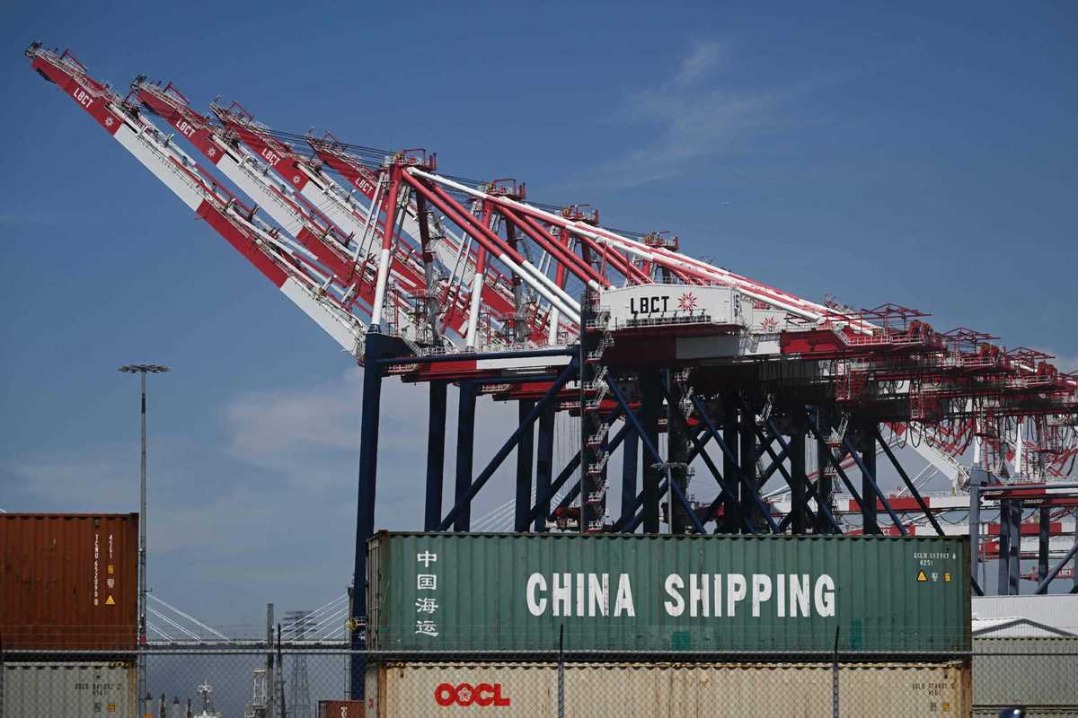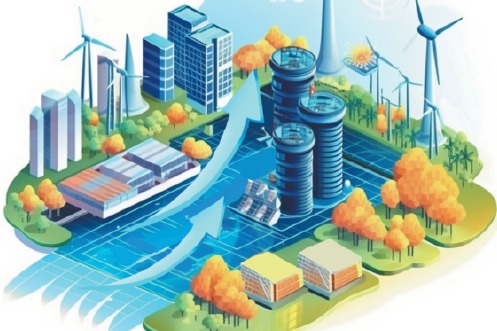Nation steps in to assume lead in global climate fight

Climate records were shattered again in 2024. Global surface temperatures soared 1.55 C above preindustrial levels, making it the warmest year in 175 years of meteorological record keeping. Every year of the past decade now ranks among the 10 hottest years recorded.
Oceans are absorbing unprecedented heat, glaciers are retreating, and atmospheric concentrations of warming greenhouse gases have reached levels not seen in 800,000 years.
A March report from the World Meteorological Organization paints a grim picture. The agency's State of the Global Climate report confirms that 2024 surpassed 2023 as the hottest year on record, crossing the 1.5 C threshold set by the multilateral Paris Agreement a decade ago.
This is a dangerous signpost.
As WMO Secretary-General Celeste Saulo said, "We are increasing the risks to our lives, economies and the planet."
This is not just data — it is a deafening alarm bell. We should be responding with urgency.
The world had once looked to the United States to take up leadership as the largest historical emitter, the richest and most powerful nation with the greatest technological capabilities.
However, under both the first and now second Donald Trump administrations, the US has withdrawn from the Paris Agreement not once but twice — a stark signal of its retreat from global climate cooperation.
Fossil fuels are being championed once again as a tool to lower domestic energy costs and stimulate industrial production. And the US is retreating into nationalist energy policies that threaten not only its own leadership but planetary stability.
Climate leadership is not just about emissions — it's also about influence. The US once projected climate leadership through innovation, diplomacy and commitments.
After all, the US helped launch the Paris Agreement in 2015 — together with China — and ratified it domestically in 2016. Furthermore, many US institutions, including academic bodies and think tanks, have led the world in decarbonization ideas, research and technologies.
Under the second Trump administration, fossil fuels have been reinstated as central to US energy policy. Funding for climate science research has been significantly reduced, leading to the termination of grants for clean energy projects and the dismissal of scientists from key agencies. Environmental regulations have been rolled back, and incentives for clean energy initiatives have been withdrawn. Concurrently, fossil fuels are being promoted as instruments of economic nationalism, echoing the "drill, baby, drill" mantra, with these combined policies framed as efforts to "make America great again".
This shift is not just domestic policy. It has global consequences. The climate torch-bearer now is China. The country leads the world in clean energy manufacturing, producing solar panels, wind turbines, electric vehicles, and batteries. It has invested heavily in green infrastructure, including green energy deployment, and is committed to achieving a carbon peak before 2030 and carbon neutrality before 2060.
So, this is the new climate reality: The US, once the standard-bearer of global climate diplomacy, has stepped back; China is stepping up. The European Union — which emits about 8 percent of global emissions — may be said to lead on climate policy, but its efforts are insufficient on its own. The rest of the world is left navigating an unstable global climate order.
Meanwhile, the climate itself is accelerating. The WMO report details record-high ocean heat, rising sea levels and shrinking glaciers. In 2024, extreme weather events wreaked havoc across continents with extreme storms. Oceans are not only warming but also acidifying. Entire ecosystems are being thrown into imbalance.
The core goal of the Paris Agreement, to limit warming to 1.5 C, is slipping out of reach. According to the WMO, three scientific models estimate current warming between 1.34 C and 1.41 C. One more fossil-fueled growth cycle — as the US is embarking upon — could lock in overshoot conditions for decades. This happens when international trust is frayed and geopolitical competition intensifies.
We can no longer separate climate change from geopolitics. Energy decisions are national security decisions. Technology competition shapes the contours of climate cooperation. The ability to deliver domestic resilience from extreme weather to clean infrastructure is now a measure of political legitimacy. Climate change has become a global stress test, not only for the environment but for governance, diplomacy and leadership itself.
The most alarming part? We have lost a clear global compass. I think cooperation is essential. Multilateralism is fragile. And the world's most significant historical emitter, the US, has lost credibility and seems unwilling to reclaim it.
The science could not be clearer, and the clock could not be ticking louder. What's missing is political will at the scale this moment demands.
The climate is changing fast, but our politics are changing faster. And if the planet is our shared home, we need leaders to mind the house.
The author is chief development strategist at the Hong Kong University of Science and Technology's Institute for the Environment.

































